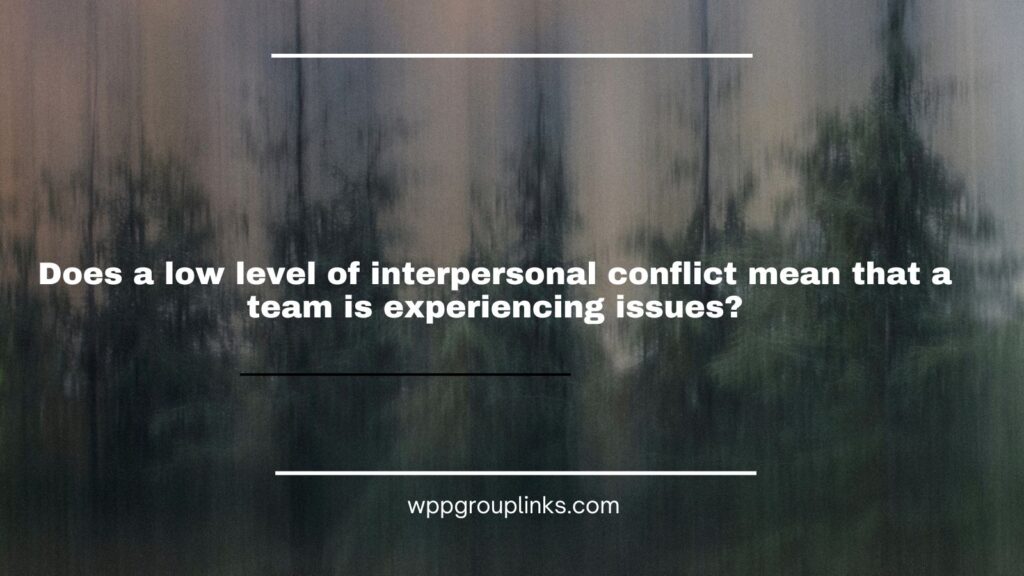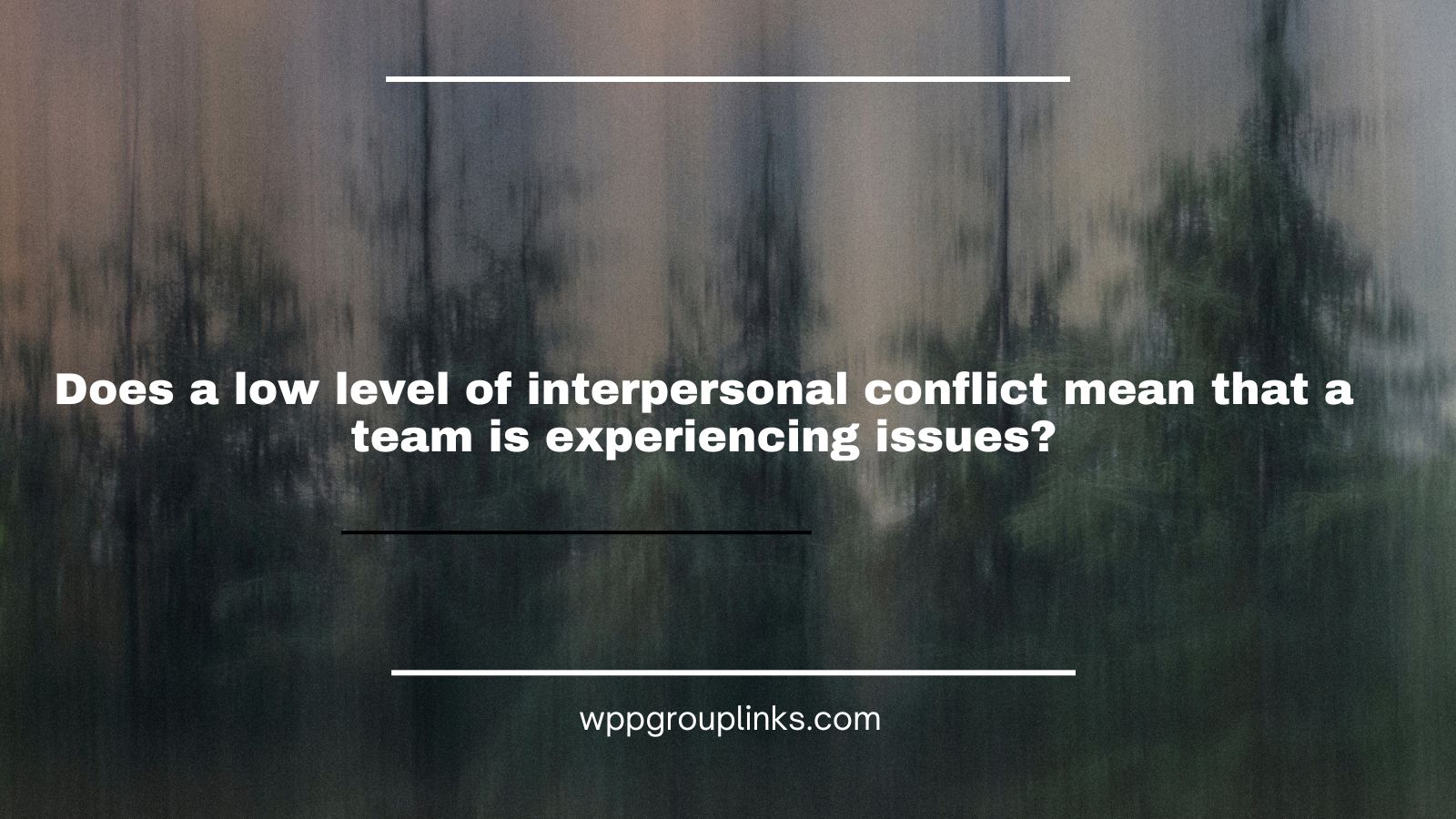
Q: Does a low level of interpersonal conflict mean that a team is experiencing issues?
or
Q: Does a low degree of interpersonal friction indicate problems inside the team?
- Yes. A team that rarely has disagreements is not committed enough to the work.
- No. A team that rarely has disagreements is more productive than a team that disagrees frequently.
- Sometimes. If a team rarely has disagreements, it could mean team members don’t feel safe stating their opinions.
Explanation: Certainly not in every case. A peaceful and cooperative atmosphere may exist inside a team when there is a continuously low degree of interpersonal conflict; however, this does not necessarily imply that there are no problems within the team. Teams may have low levels of conflict when there is excellent communication, common values, and strong teamwork, all of which are typically desirable characteristics. However, it is vital to take into consideration the setting and character of the task that the team is doing.
In some circumstances, the absence of conflict may be an indication that members of the team are avoiding essential talks or are not expressing varied points of view. When handled positively, constructive conflict may be a catalyst for creativity, enhanced decision-making, and enhanced group dynamics. To get a complete comprehension of the dynamics of the team, it is necessary to evaluate the lack of conflict in combination with other aspects, such as the availability of open communication, the level of participation from team members, and the capacity to successfully face obstacles.



